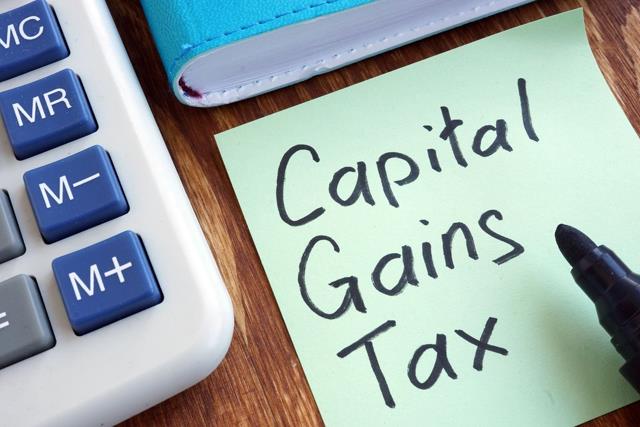Section 111A of the income tax act has specific rate of tax on short term capital gain. This section was inserted by finance act 2004 to provide special rate of 10 per cent on short term capital gain. In 2008 rate of 10% was increased to 15%. Section 111A is application on few transactions elaborated given below through the questions and answers mode.

1.What is Capital Gain?
Profit or gain arising from transfer of capital assets is called as capital gain. Capital gain is chargeable to tax under the head ‘’Capital Gain’’
2. What is Capital Asset?
Capital asset is defined under section 2(14) of the income tax act 1961. Capital asset means
- a property held by the taxpayer whether or not connected with his business or profession.
2. any securities held by a Foreign Institutional Investor (FII)
3. any unit linked insurance policy to which exemption under clause (10D) of section 10 does not apply on account of the applicability of the fourth and fifth provisos thereof (w.e.f 01.04.2021)
But the capital assets does not include:
- Stock-in-trade
- Personal effects, that is to say movable property held for personal use. However capital asset includes:
i) jewellery;
ii) archaeological collections;
iii) drawings;
iv) paintings;
v) sculptures; or
vi) any work of art.
- agricultural land in India (with certain conditions)
- 6 per cent Gold Bonds, 1977, or 7 per cent Gold Bonds, 1980, or National Defence Gold Bonds, 1980,
- Special Bearer Bonds, 1991,
- Gold Deposit Bonds
3. Period of holding of Short-term capital asset specified under section 111A?
Any asset held by taxpayer for a period not more than 36 months is called as short-term capital asset. However, holding period is 12 months for the certain capital assets like:
- Equity or Preference share (Listed in any stock exchange in India)
- Units of equity oriented mutual funds
- Debentures and Government securities (listed)
- Units of UTI (listed)
- Zero Coupon Bonds (listed)
4. What is income tax rate of Short term capital gain covered under section 111A
Income tax rate is 15% plus 4% health and education cess
5. Capital assets on which 15% tax is levied.
There are only 3 short-term capital assets covered under section 111A on which 15% tax is charged:
- Equity shares
- Units of equity oriented mutual-funds*
- Units of business trust
*Equity oriented mutual fund means a mutual fund specified under section 10(23D) and 65% of its investible funds, out of total proceeds are invested in equity shares of domestic companies.
6. Conditions to claim benefit of special rate of tax (i.e. 15%)
- Transaction is entered into on or after the finance act 2004 was came into force.
- Such transaction is chargeable to securities transaction tax (STT)
7. Deduction under the chapter VI-A (Section 80C to 80U) from short term capital gain-
Deduction of section 80C 80U are not available from short term capital assets if securities transactions tax is charged.
8. Exemption of Slab benefit to Individual or HUF
Short-term capital gain is taxable at the flat rate of 15%. However, Resident Individual or HUF can claim the Slab benefit if total income is less than exemption limit(Slab Benefit). The basic exemption limit applicable in case of an individual is as follows:
| Status | Exemption limit |
| For resident individual age of 80 years or more | Rs. 5,00,000 |
| For resident individual age of 60 years or more but less than 60 year | Rs. 3,00,000 |
| For resident individual age below 60 years | Rs. 2,50,000 |
| For Non-resident individual | Rs. 2,50,000 |
Note:
- Only resident individual can adjust STCG against basic exemption limit. Non-residents are not allowed to adjust STCG from basic exemption limit.
- Resident can adjust STCG after making adjustment of other income. In other word, First Income other than STCG covered under section 111A will be adjusted, then STCG covered under section 111A will be adjusted.
For Example:
Mr. Naresh (age 68 years and resident) is a retired person. He purchased equity shares of Reliance Ltd. in March, 2022 and sold the same in May, 2022 (sold in National Stock Exchange and STT is levied). Taxable STCG amounted to Rs. 1,20,000. Apart from gain on sale of shares he is having Salary income of Rs 2,00,000. What will be his tax liability for the year 2022-23?
For resident individual of the age of 60 years and above but below 80 years, the basic exemption limit is Rs. 3,00,000.
| Particulars | Rs. |
| Income from Salary | 2,00,000 |
| Income for STCG (u/s 111A) | 1,20,000 |
| Total Income | 3,20,000 |
| Less: Basic Exemption limit (First salary income then STCG shall be adjusted) Salary (2,00,000)+ STCG (1,00,000) | 3,00,000 |
| Income after adjustment | 20,000 |
| Tax u/s 111A (20000×15%) | 3,000 |
9. Tax on Short-term capital gain if securities transaction tax (STT) is not applicable:
If STT is not applicable then special tax rate benefit of 15% will not be available and it is taxable like any other income.
Concluding remarks:
The benefit of section 111A is not available on shares transaction of buy and sell carried out as part of and assessee’s business (Raju PVS vs ACIT 340 ITR 75), however, if the conduct of the assessee shows that buying and selling is not for the trade but for the investment, benefit of section 111A will be available (CIT Tejas Securities 393 ITR 132).
For any information/query/concerns related to income tax provisions, please feel free to contact us at mail@nbaoffice.com







